Interview
Fuji Electric's Food & Beverage Distribution Solutions: Responding to Environmental Needs Through Energy Conservation and Automation
Source: Nikkan Kogyo Shimbun Online
From March 28, 2023 to April 5, 2023
Fuji Electric has two food distribution businesses—vending machines and store distribution. Our primary customers in the vending machine business are beverage and food producers, as well as vending machine operators responsible for operating and managing vending machines, and Fuji Electric manufactures and sells about 70% of all new beverage vending machines shipped domestically. In the store distribution business, our main customers are convenience stores and supermarkets. We manufacture and sell freezer and refrigerator showcases, counter fixtures such as coffee machines, and automatic change machines to these establishments. For both businesses, the realization of a decarbonized society and the response to new demand associated with social change are crucial. “We want to use our core technologies to grow our business by providing products and solutions that meet market needs,” says Shinsuke Doi, who is the senior manager of the Product Planning Department of the Business Planning Division of the Food & Beverage Distribution Business Group.
Responding to new needs in society (equipment and services)
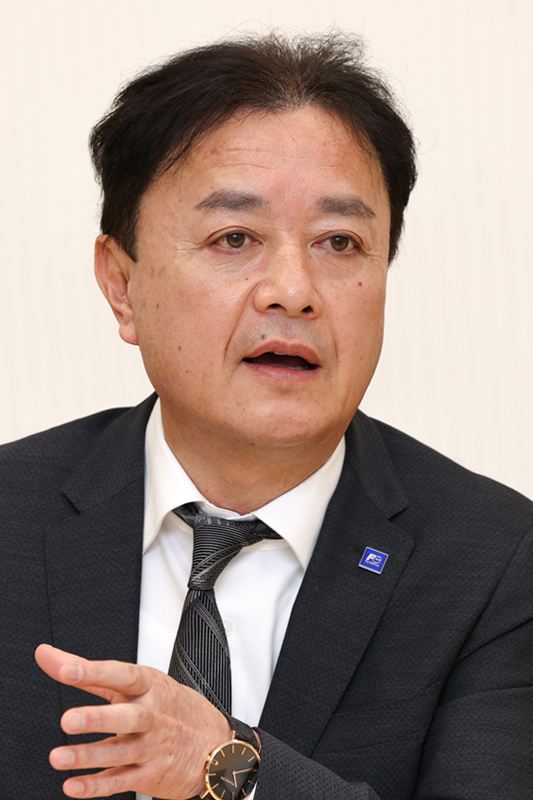
Senior Manager, Product Planning Dept. Business Planning Division.
Food & Beverage Distribution Business Group
The number of vending machines installed in Japan is estimated to be about 4 million, of which 2 million sell products in cans and PET bottles. In recent years, the trend has been flat to slightly declining, and expansion is unlikely. However, as new needs emerge, such as greater opportunities to use vending machines due to the growing need for contactless and non-face-to-face transactions and increased demand for frozen foods, as well as more efficient operations, it is necessary to accommodate high-value-added products and services.
Meanwhile, in the store distribution industry, investment in new convenience stores is on the decline, but there is demand for the renovation and replacement of equipment in stores as a result of the increase in sales areas for alcoholic beverages and frozen food and the introduction of cashless payment and self-checkout systems due to the impact of COVID-19, which calls for new action.
Customer demand for contributions to decarbonization
The challenges shared by the customers of our vending machine and store distribution businesses are to reduce the environmental impact and achieve a decarbonized society. Many of the major beverage companies have set targets to reduce greenhouse gas (GHG) emissions from vending machine operations by 30% by 2030, while major convenience store chains aim to reduce GHG emissions associated with store operations by 50% by 2030 and to achieve carbon neutrality by 2050. In both businesses, it is critical that we respond to the environmental needs of customers.
Vending machine business—aiming to tackle issues in society with the “Sustaina Vending Machine Series”
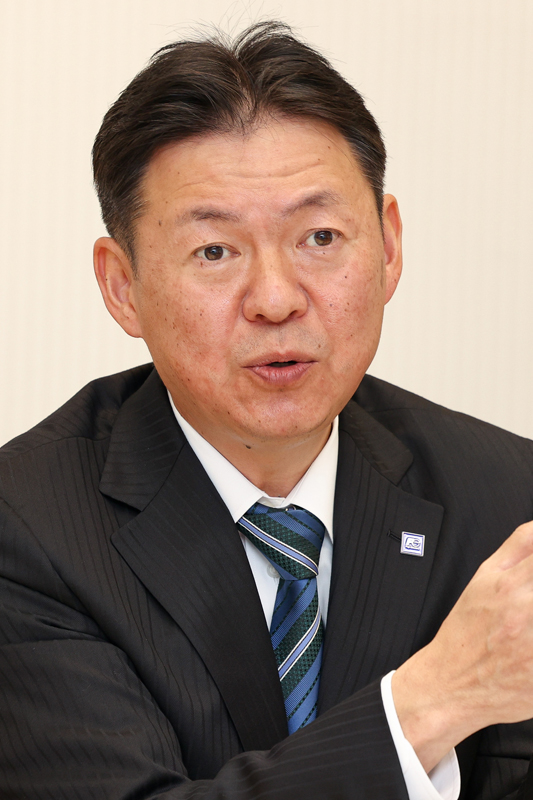
Senior Chief Expert, Product Planning Dept. Business Planning Division.
Food & Beverage Distribution Business Group
While machines made for cans and plastic bottles form the core of our vending machine business, our machines handle a wide range of other products, including paper cartons, paper cups, and food products and goods. In response to new demand arising from changes in society, we have recently added new products to our lineup, including “Multi-kun,” a multi-purpose vending machine for food and goods, and “FROZEN STATION,” a frozen food vending machine. As for our mainstay beverage vending machines, we introduced the “Sustaina Vending Machine Series” to the market in January 2023, aiming to play a part in tackling challenges in society related to the SDGs, carbon neutrality, and labor shortages.
According to the Japan Vending System Manufacturers Association, annual power consumption per vending machine has decreased to about 700 kWh, less than half of what it was around 2005, but the trend has been flat since around 2014, and the momentum to reduce power consumption has slowed. “Although efforts to conserve energy have continued, the trend has remained flat due to the increasing size of vending machines and the increase in functions such as those for cashless payment,” says Masaki Nakayama, a senior sales expert at the Product Planning Department. For this reason, new measures are required in order to meet decarbonization targets.
Under these circumstances, we have worked with new technology (including the adoption of inverters, optimization of vacuum insulation and internal airflow control, etc.) to develop a “super-energy-saving machine” that reduces annual power consumption by up to 20% compared to the 2022 standard model.
In addition to energy conservation, IoT technology can also be used to remotely monitor sales, out-of-stock items, and failures of vending machines, enabling operators to replenish items in a timely manner, and to send instructions for price changes (dynamic pricing) according to the season and shelf life. This will improve the work efficiency of vending machine operators, who face labor shortages, and also increase sales per vending machine.
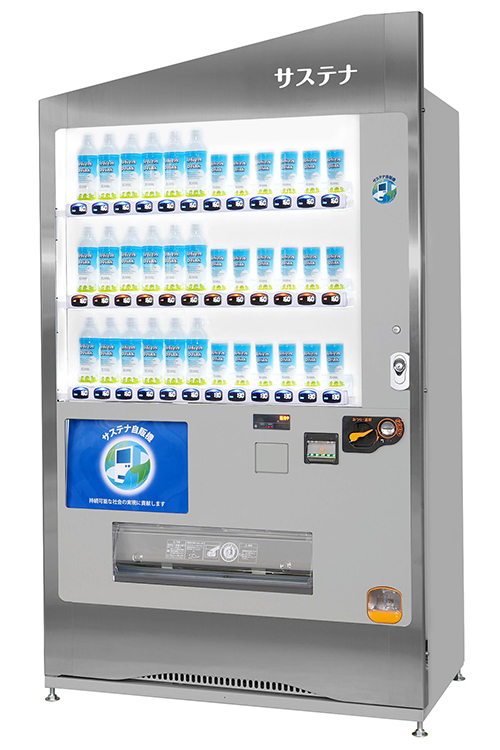
Store distribution business—conserving energy in refrigerators and freezers, which account for 40% to 50% of electricity consumption at convenience stores
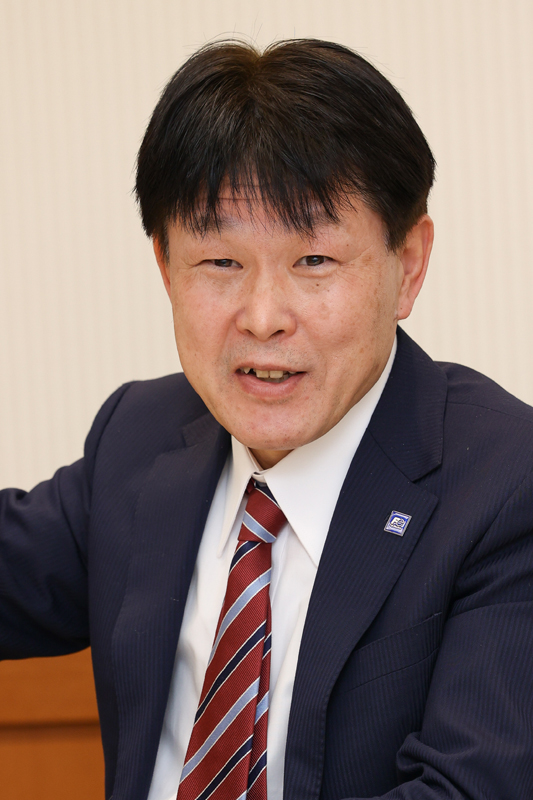
Manager, Product Planning Dept. Business Planning Division.
Food & Beverage Distribution Business Group
Our store distribution business is also expected to play a part in addressing issues in society through solutions such as carbon neutrality and the reduction of food loss and plastic waste, which are being advanced by major convenience store operators. “Curbing rising electricity prices is essential, especially at this juncture,” explains Kunio Tago, a manager at the Product Planning Department. Electricity bills for convenience stores are split between corporate headquarters and store owners, so the reduction of electricity costs is an urgent requirement for both.
To address this challenge, Fuji Electric is working to conserve energy consumed by freezer and refrigerator showcases at convenience stores by improving the efficiency of refrigeration cycles through electronic control, enhancing insulation, and optimizing airflow control through the use of air curtains. “By 2030, we will reduce the amount of power consumed by showcases by 20 to 30% compared to the current figures,” Tago says.
Apart from the showcases, energy is conserved through the use of store controllers that are synchronized with air conditioning, lighting, and freezers. Fuji Electric will continue to plan and implement EMSs that use new store controllers both inside and outside stores, and work together with other business groups throughout Fuji Electric to carry out our efforts.
Challenges in society such as the realization of a decarbonized society and measures to address labor shortages and food loss are broadly shared across industries, and concrete solutions are required for both the vending machine and store distribution businesses. Fuji Electric aims to add value to its products and services by proactively developing solutions ahead of other companies, leading to business growth.
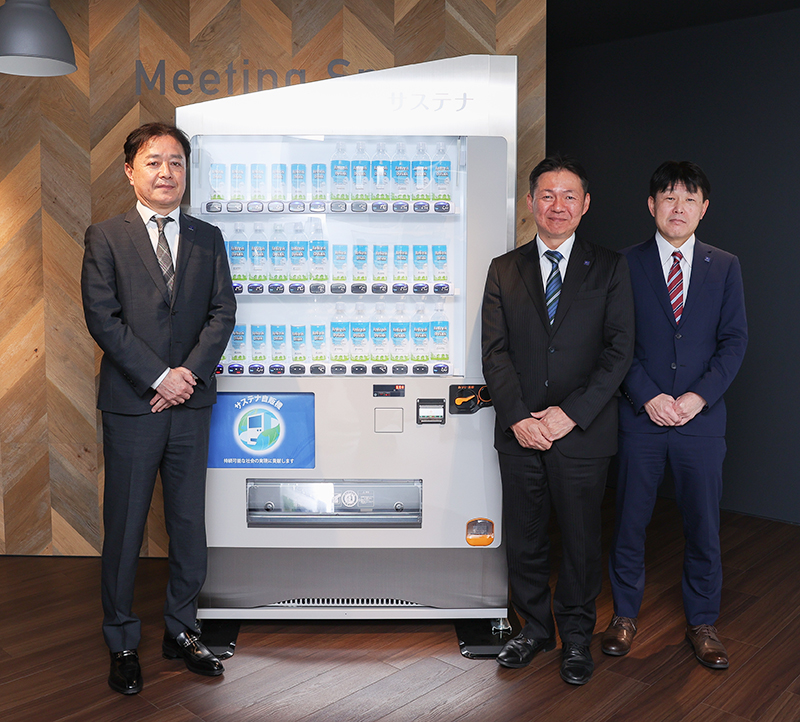
* Reporting for this article was conducted with precautions taken against COVID-19 infection, including wearing masks except during photography.
Contributing to SDGs
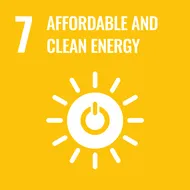
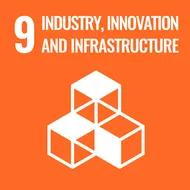
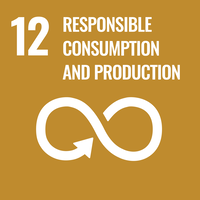

Our technologies achieve "energy saving" and "automation" and meet environmental needs of vending machine and store equipment.
Recommended
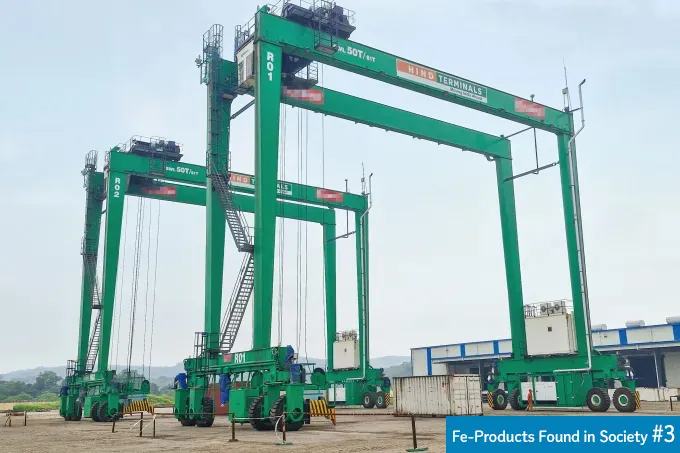
July 30,2025
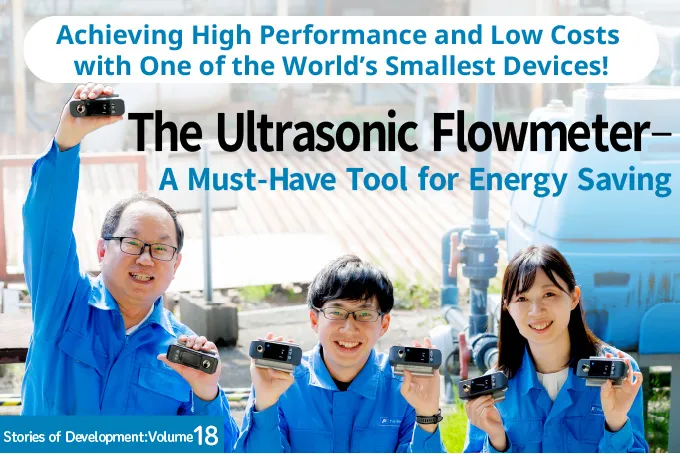
July 28,2025
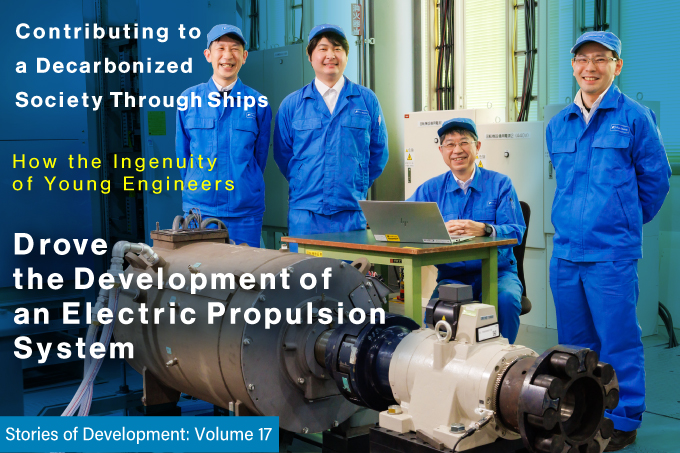
July 7,2025
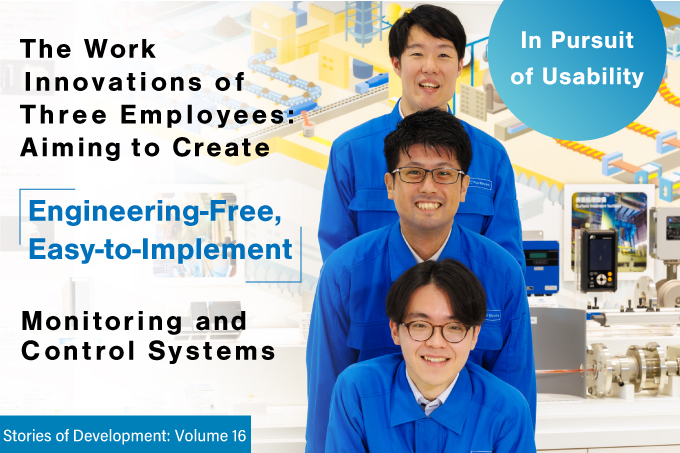
July 2,2025
